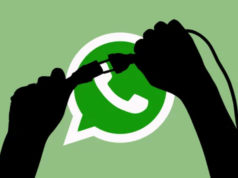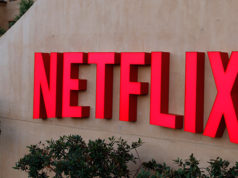AT&T Inc., which became the world’s largest telecom company by closing the $86 billion acquisition of BellSouth Corp., will aggressively push new wireless services to corporate customers and consumers, and make advertising a key revenue stream, according to Chairman and Chief Executive Edward E. Whitacre Jr.
With full control of cellphone operator Cingular Wireless, formerly a joint-venture with BellSouth, the San Antonio-based phone company will begin selling AT&T-branded wireless services to its large pool of corporate phone and Internet customers, allowing it to offer discounts for bundles that were impossible when Cingular was a separate entity. AT&T corporate users will be able to access their files and desktops remotely, whether they are plugged into a land-line Internet connection or connected to the Web wirelessly.
Consumers will have a choice of signing up for a new package of cellphone and Internet service rather than just the traditional bundle of land-line phone and Internet service, the company says. Until now AT&T had worried about cannibalizing its land-line phone business. AT&T has also been testing cellphones that can run on Wi-Fi networks when at home, letting consumers save money on their cellphone bills and potentially get better reception indoors.
«The biggest asset we bought here was Cingular,» said Mr. Whitacre. «We’re about to become a company with wireless at its heart.»
AT&T also will begin selling advertising on cellphones, television and its Internet-access service this year, allowing advertisers to reach consumers across multiple platforms with a single operator. Advertisers will be able to buy spots for TV and broadband beginning early this year, with wireless ads following suit later this year. The advertising business could generate several billion dollars in revenue per year in the next five years, the company says.
AT&T is embarking on its wireless push after a year in which its shares rose 46% as investors applauded two years of deal making, including the acquisitions of BellSouth, AT&T Wireless and the former AT&T Corp. Analysts expect industry consolidation to continue, particularly among smaller regional wireless carriers.
AT&T now has 58.7 million wireless customers, 67.5 million local-phone customers as well as corporate accounts with all of the Fortune 1000 companies. In addition to wireless and advertising, its other key growth engines in coming years will be its nascent Internet-based television service as well as overseas operations, particular among corporate customers. Since Cingular uses a cellphone technology called GSM that is popular in Europe and Asia, it is well-positioned to strike partnerships with foreign carriers on roaming agreements.
But the company is up against large rivals on all fronts. Verizon Communications Inc., which acquired MCI Inc., is ahead of AT&T in rolling out television to its customers, and its cellphone unit, Verizon Wireless, leads the industry in revenue, but trails Cingular in subscribers. Verizon Wireless is a joint venture with Vodafone Group PLC, which owns 45% of the venture. What’s more is that cable companies are entering the telephone realm, selling packages of television, land-line phone service and Internet access.
Meanwhile, AT&T will be relatively late to the game in cellphone advertising. Sprint Nextel Corp. shows banner ads on some mobile Web sites, and Verizon Wireless has said it will do something similar beginning early this year. AT&T hasn’t said how it will deliver its cellphone ads. A risk for all the carriers, including AT&T, is whether consumers will accept marketing on cellphones the way they have come to accept them on television and the Internet. AT&T has decided to take a cautious approach for fear of alienating its subscriber base.
AT&T plans to transition the Cingular and BellSouth brands to its own moniker this year. Wireless ads will begin mid-January under the slogan «Cingular is now the new AT&T»; the BellSouth brand will begin to be phased out this week, people close to the company say.
BellSouth, based in Atlanta, offers phone and high-speed Internet service mainly in the southeastern U.S. While AT&T and Verizon pressed ahead with TV services in recent years, BellSouth pursued a more modest strategy, limiting its infrastructure spending. The company was a favorite of investors leading up to the AT&T deal. AT&T expects about $18 billion in synergies through the merger, and as part of the deal.
Mr. Whitacre, 65 years old, will retain the positions of chairman and chief executive officer in the merged company. BellSouth Chairman and CEO Duane Ackerman, 64, will serve as chairman emeritus for a transition period following the merger.
Write to Amol Sharma at [email protected] and Almar Latour at [email protected]
Fuente: The Wall Street Journal


















